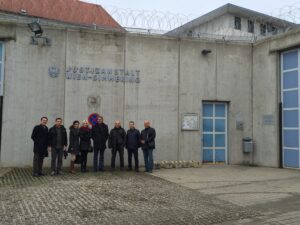
Technical Assistance for Prevention of Corruption and Promotion of Ethics
Despite the OECD’s assessment that Turkey has made significant progress since 2007 in its efforts to combat corruption, the issue continues to represent an obstacle to economic and social progress and, potentially, to greater integration with the EU. The overall objective of the project was to contribute to

Technical Assistance to Support Direct Grant Management in The Field of Employment Policy
It is essential to keep labour markets alive for every country in the world. As a result, the project aimed to increase the effectiveness of Serbian employment policy in line with the country’s labour market needs by working with institutions and organisations which are responsible for the labour

Technical Assistance for Implementation of Human Resources Development Operational Programme (HRD OP 5.1)
There was a need regarding the implementation of the HRD OP for improving the coordination and control of HRD OP, and by assisting the Operating Structure and relevant institutions in the different programming, monitoring, evaluation and implementing tasks. Within this context of the project, the components were aiming

Technical Assistance for Improvement of Enforcement Services in Prisons (DEPAR)
There was a general recognition that standards and conditions in Turkish prisons needed to be improved and brought into line with international norms, particularly those operating in the EU in the context of closer EU-Turkey integration.

Technical Assistance for Facilitating Access of Disadvantaged Higher Education Students to the Labour Market
Research indicated that disadvantaged people, especially poor students, lack in participation in the labour market. Consequently, the purpose of the project was to increase the employability of disadvantaged people, facilitate their access to the labour market, and increase their access to public employment services. Helping disadvantaged people gain

Strengthening Vocational Qualifications Authority (VQA) and National Qualifications System (NQS) in Turkey
It can be claimed that the labour markets are required to ensure the provision of formal and non-formal education and training, to support life-long learning, strengthening the relationship between education and employment, and facilitating harmonization with the European Qualifications Framework (EQF). Within this scope, the project aimed to

